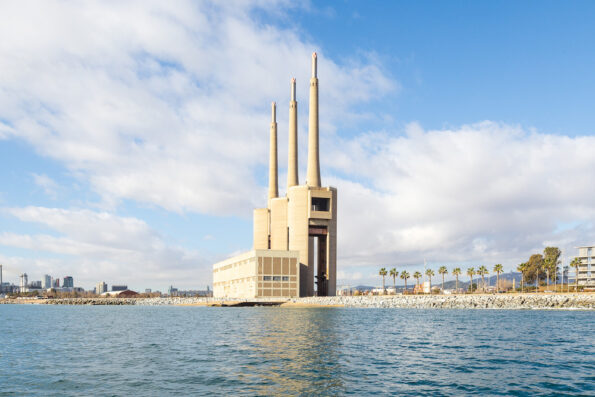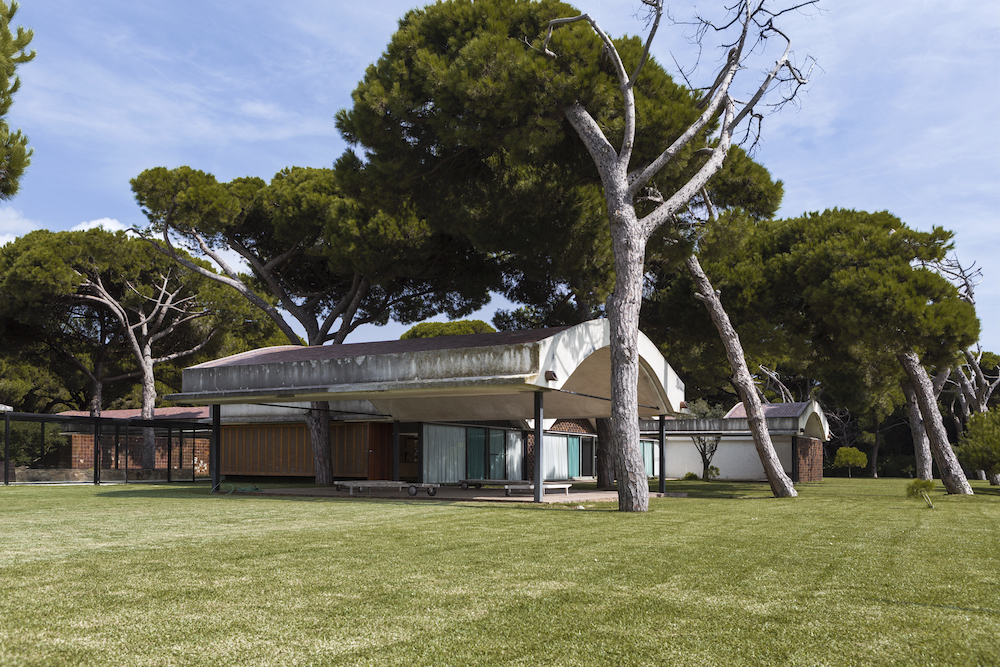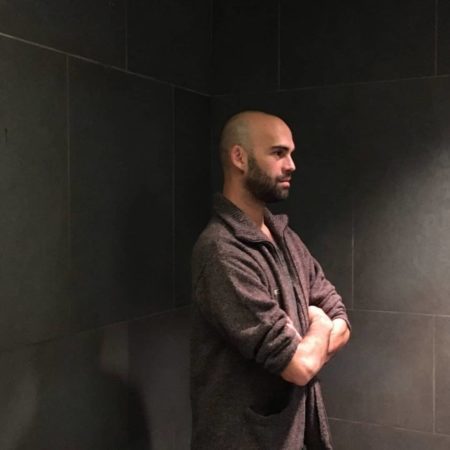Search
To search for an exact match, type the word or phrase you want in quotation marks.
A*DESK has been offering since 2002 contents about criticism and contemporary art. A*DESK has become consolidated thanks to all those who have believed in the project, all those who have followed us, debating, participating and collaborating. Many people have collaborated with A*DESK, and continue to do so. Their efforts, knowledge and belief in the project are what make it grow internationally. At A*DESK we have also generated work for over one hundred professionals in culture, from small collaborations with reviews and classes, to more prolonged and intense collaborations.
At A*DESK we believe in the need for free and universal access to culture and knowledge. We want to carry on being independent, remaining open to more ideas and opinions. If you believe in A*DESK, we need your backing to be able to continue. You can now participate in the project by supporting it. You can choose how much you want to contribute to the project.
You can decide how much you want to bring to the project.

El Sindicat de Llogateres (Tenants Union in Catalan) has been instrumental in defending housing rights in Barcelona since its creation in May 2017. Over the years, the Union has launched various campaigns, empowering neighbors and demanding specific regulations from the administration. It’s important to remember that the 2008 financial crisis began in the housing sector. Since the late nineties – and even before – Spain implemented a series of public policies, legal reforms, and economic measures related to land rezoning, mortgages, and credit. While these allowed for an overproduction of housing, they also created a property bubble that eventually burst, causing one of the major crises in the country’s recent history. Although some movements in Spain were already protesting the housing crisis in 2006, for example, V de Vivienda, or recall the famous slogan No Tendrás Casa en Tu Puta Vida (“You won’t have a house in your fucking life”), the 2008 collapse emerged as a systemic crisis, sparking a massive wave of protests. La PAH (Plataforma de Afectados por la Hipoteca (The Platform for People Affected by Mortgages)) became one of the leading organizations addressing the impacts of the crash, and, together with others, La PAH was at the origin of Sindicat de Llogateres. One of the effects of this crisis, especially in Spain, was the arrival of large investment funds that purchased vast quantities of properties. As the crisis spread a general precarization of Barcelona and its population. This, in retrospect, allowed for the growth of mass tourism and gentrification as the main economic solutions to the recession. Since its inception, the Union has been active in proposing specific measures to regulate rent prices, such as the mandate that 30% of public housing be included in each new construction. The campaign Ens Quedem (“We are staying”), wherein tenants refusing to vacate their apartments continue to pay their old rent, forcing collective negotiations with large investors and vulture funds, is also one of their initiatives. So too was the organizing of a rent strike during the pandemic, and advocacy for a congressional proposal to push the Spanish government to approve a new housing law.
Today, Barcelona is populated with nomadic inhabitants and businesses. It is oriented toward tourists who have destroyed the character of the city and many local relationships. The displacement of Barcelona’s population risks making the city resemble Venice, an empty backdrop for seasonal inhabitants who can afford to live there for a few months and consume a fake and generic experience. Over the last thirty years, Barcelona has been transformed by events including the 1992 Olympic Games and the 2004 Universal Cultures Forum, which were operations to position the city internationally and to implement urban transformation, pressuring the city and its citizens to assimilate to neoliberal agendas and global spatial models and products. Past year, 2024, there were the America’s Cup and the Manifesta Biennial.
The first is a sailing competition that attracted 2 million tourists, in addition to the 26 million tourists that usually visit each year, in a city of a little more than 1.5 million people, which has endured a severe drought for the past three years. This overwhelming influx implies a huge social and environmental cost. The second event, Manifesta, the contemporary art biennial that focuses on a different European city and has become instrumental in changing the narrative of that place, using culture to gentrify areas and attract visitors and investors. The 15th edition spread across 11 other municipalities in the metropolitan region. While Manifesta may not have the same media and public impact as the America’s Cup, it promotes the metropolitan region to an international population, as many are, and will be, displaced or forced to move in the coming years as another result of Barcelona’s mass gentrification process.
In light of these predictable consequences, it is known that Manifesta was purchased by the city (for between 6 and 8 million euros, depending on the source on whom one relies) as a concession from Ada Colau administration to the contemporary art scene in Barcelona, as she had dismissed them from the very beginning of her tenure —despite the artistic community being one of the most supportive sectors of her mayoral candidacy. Apparently, once Colau became mayor, an advisor told her that contemporary art was a toy for posh people and thus her opinion of art changed. Still, it is unclear what benefits Manifesta has brought to the local artistic community, given the very low number of participating local artists, and the fact that the usual precarity and structural problems of the arts will continue intact after Manifesta “leaves” to conquer another city in Europe.
Carme Arcarazo is the spokesperson of Sindicat de Llogateres has advocated for an integral housing policy that, while regulating rent, also increases public and cooperative housing projects. We talked with her about the future of El Sindicat de Llogateres and the ways in which the commodification of housing is part of the same extractivist logic that views nature, land, and the city as passive resources to be exploited, and about how to transform the situation and address the housing and ecological crises step by step.
Michael, María Inés, Xavi: Sindicat de Llogateres has been shaking things up since 2017. What’s been your proudest moment so far?
Carme Arcarazo: It’s very hard to mention the proudest moment. Usually, we think of victories as the proudest moments, but surprisingly, defeats also come to mind. We had a case with Juan and Lidia, who lived in Gràcia. They were refusing a rent increase, which was completely legal at the time, as the owner could raise the rent as much as they pleased, so they decided to stay and keep paying the old amount. The dispute with the owner lasted a long time, and there were many evictions attempts where hundreds of people would gather to protect the building and prevent the police from entering. In the last attempt, the police succeeded – we had hundreds of people organized, but the police entered through the basement and managed to evict the family. We appeared on all the TV news, and Lidia, speaking in front of the camera, said that the only battle that is lost is the one you don’t engage in, the one that you don’t fight. And she fought until the end to show how absurd the situation was, and how we needed rent control to prevent abusive practices. So, I think it is thanks to people like them, who view their own fight as a collective one, that makes the biggest difference. Similarly, we fought a long case with Caixa Bank, the largest property owner in Catalonia, which owned a big part of the publicly funded, affordable housing stock under very abusive clauses, implementing rent hikes, and obliging their tenants to have bank accounts and insurance from their own bank. For years, we tried to negotiate and agree on some basic issues – no evictions, no rent increases, maintenance of their buildings, and so on. It was impossible to get them to sit at the table, and we thought it was going to be very difficult because CaixaBank has enormous power in Catalonia. But we decided to take them to court. For the first time, the Union engaged in a trial. We had fifty blocks and more than a thousand tenants, and this summer, in the middle of it, CaixaBank agreed to sell these blocks to the government. So, yes, it takes time, and it’s a constant struggle. We now have in Spain a new law for housing rights, but we will never get to the point where the Union is not needed. We don’t see ourselves purely as a social movement. We are a union, and we are organized because we need to defend our rights.
MMX: So, what’s next on the horizon for the Union?
CA: We now have over 3,000 households in Catalonia. We have a membership, which was one of the decisions we made at the beginning, because we wanted to know how many of us there are, and we wanted to have the economic independence to be able to bring for example a vulture fund to court, organize training for our members, and have a strike fund that allows us to support people who dare to strike. So, we want to consolidate this. We are living through a process of property accumulation, and we are talking about large landlords, so we are now organized not by neighborhoods but by landlords, like Blackstone. This is very important, and it gives us the power to leverage by gathering the forces of tenants across the country. It took us a long time to pass a rent control law, and the real estate sector will always find loopholes to try to disobey the law, and they are not afraid of engaging in illegal behavior. So, for us, even though it might not sound very sexy, it’s also about ensuring that the laws are respected, and our victories consolidated, forcing big landlords to obey.
MMX: There’s nothing sexier than structuring a renters’ union. It’s impressive the level of organization you’ve accomplished, and how you’ve managed to pressure governments and media to focus on the housing crisis. How do you see your work intersecting with that of environmentalists?
CA: It’s a crucial issue, and it’s hardly spoken about. In the UK, part of the housing movement and the environmental movement have diverged greatly and have actually clashed with each other. We think this is very problematic, and we need to understand that both struggles are connected. Some parts of the housing movement there are in favor of building new housing units, while environmentalists are against it because we know about the ecological impact of construction and how it is responsible for 25% of greenhouse gas emissions. For us, the only way of resolving the housing crisis is by questioning the scarcity of supply, a narrative that is constantly being bombarded at us by the media. Before building more, we should assess the situation and [see] how many apartments are used as second or third homes, Airbnb properties, or commercial shops. We should focus on how to use the current stock before building more, which will damage the environment. Our collective struggles are to transform the built environment into something that is not based on private profit, which is a direct confrontation with the same people who are destroying the environment. Rent strikes are also ecological strikes.
MMX: What are your views on Manifesta that just has taken place in Barcelona and other forms of cultural institutions that engage in gentrification?
CA: When it comes to events like Manifesta, we need to look at it in a broader picture. It’s part of a series of projects that are used to showcase the city in a specific way, and these spectacles are very efficient because they bring investment and media attention to the city. Of course, we know the problem is not art per se; it’s how art is used. The same goes for sports and music. We need to be critical and see how culture and art are being instrumentalized by the capitalist and neoliberal dynamics. And this is not specific to Barcelona, it’s happening all over the world. At the same time, I understand how difficult it is for artists, and I’m sure many of them are aware of this, and they don’t want to be used as pawns. We need to think of alternative ways of organizing cultural events that are aligned with the struggles of the people living in the city.
MMX: In Barcelona, we have mass tourism and a rampant gentrification process that turns the city into a playground for the wealthy. Sometimes, this is visible in empty buildings and the concentration of homeless people in certain areas. [This interview was conducted online, but Michael shows the street where his Free Music School is located, where an old sports hall is surrounded by an encampment of homeless people]. What specific measures can we imagine preventing further the destruction of the city?
CA: The number of empty buildings and apartments in Barcelona is a highly disputed topic. It’s very unclear how many there are. Several studies have been conducted on this. We used to be critiqued for wanting to implement a rent control law, with the argument that it would not be profitable for landlords to rent out their apartments, making it cheaper for them to keep them empty. Of course, this is ridiculous because a common practice among large investment funds is to buy entire buildings and leave them half-empty to increase their value and create a sense of scarcity. This practice has increased over the past few years and has nothing to do with rent control but with speculative strategies that use our cities as a way to make money. In Barcelona, we now have superilles (superblocks—large pedestrian areas that consolidate blocks, increase greenery, and control traffic). These are often seen as a reason to raise rents, but we should be able to have both, a right to healthy, breathable environments and rent control that ensures housing is affordable. The way to achieve this is through stronger laws and enforcement. One of our most famous cases, Casa Orsola, is located in a superblock. They want to expel 27 households. So, for us, it is completely necessary to have regulations that allow people to live in their neighborhoods, in the places where they grew up, in this case, the center of Barcelona.
MMX: At the assemblies, you are creating a sense of collectivity, and you’re doing it by using Catalan as a language for everyone, which is not common in Barcelona as a street language. What are some of the experiences of this way of connecting people from such diverse backgrounds?
CA: Yes, this is very important. Through realizing that if we are together, we can win. For example, we’ve had racist individuals attend the assemblies, and through their engagement, they have come to realize that the enemy is not the migrant – that the narrative of scarcity is false, and that we are all sharing the effects of a housing market designed to profit landlords. The problem is not the person next to you but the one above. For us, it’s also key to celebrate our victories – every renewed contract, every person who gets their deposit back. This is a victory for all, which allows us to feel part of a larger community and create class consciousness. While in other parts of Europe, renters’ unions have existed since the early 20th century, in Spain, renters’ unions were not common, so we are building a new subjectivity that involves many different people. Since the beginning, we have used Catalan in our assemblies, which is relevant because Catalan is a minority language that is under threat. Despite many people not knowing the language, they make an effort, and of course, we switch to Spanish or another language if necessary. But it is very impressive to see how and what people learn by sharing their struggles.
MMX: Since the Olympics, Barcelona has organized large events as a way to achieve major urban reforms and to attract investors and tourists. Past year, we had the America’s Cup and Manifesta, which are events targeting different publics but perhaps have more commonalities than one would expect. While the America’s Cup attracts an elite sports crowd, Manifesta seems designed to convince locals to move to other cities in the metropolitan region. One of the venues of Manifesta was the Three Chimneys in Sant Adrià de Besòs (also known as “Chernobyl”), where there is a huge housing development planned.
CA: Yes, Manifesta has not been as much in the debate as the America’s Cup, and it’s hard for people who are not part of this sector to engage with a contemporary art biennial. But the general opinion of the people in Barcelona towards these large events is starting to change. We have to question who benefits from these events, and, in the case of the America’s Cup, all political parties were in favor, and its effects are already a disaster for the city, with increases in rent prices, QR codes for the neighbors of La Barceloneta to enter their homes, and the privatization of public space. Some people in the cultural sector are indeed sensitive to the housing situation, but gentrification doesn’t happen just because some artists move to an area where rent is cheaper. It’s an organized strategy to bend public investment, zoning, and fiscal policies in favor of certain economic agendas. In recent years, we’ve been told there’s not enough space in the city for everyone, and that we inevitably have to move to other cities and towns in the metropolitan area. We almost have to apologize for living in the central areas of Barcelona.
MMX: Last spring, the union organized an international meeting of renters’ unions in Barcelona. What strategies are being shared, and what are the prospects for creating alliances and building solidarity across countries?
CA: It was very important for us to meet in Barcelona. In two years, we have another big event, it’s called The District, a real estate fair where investors from around the world come together to discuss trends and to press for certain policies. For us, organizing an International of Renters in Barcelona was also a response to this provocation, to show them that we are also making international connections and planning future actions across countries, sharing knowledge. We need to have a global tenant strike and share more struggles, so we approved the Declaration of Barcelona and are working on commissions, developing an international structure that is very exciting.

Casa Gomis, 2024. Foto © Manifesta 15 / Helena Roig
(Featured image: The Three Chimneys, 2024. Photo © Manifesta 15 Barcelona Metropolitana | Arnau Rovira)

Xavier Acarín is fascinated with experience as the driving force of contemporary culture. He has worked in art centres and cultural organizations both in Barcelona and New York, focussing in particular on performance and installation.

Michael Hart is an artist living between Barcelona, Spain and Saint-Cirq-Lapopie, France. He was born in New Orleans, Louisiana in 1981 and grew up in a suburb of Fort Worth, Texas. His mother is a retired school teacher and his father is a Pulitzer Prize winning photojournalist. Hart’s photography has been published in Art Forum, The Boston Globe, El Pais, The Guardian, Haaretz, or The New York Times Style Magazine, Vogue Magazine, the Wall Street Journal among many others.
www.hartharthart.com

María Inés Plaza Lazo is an editor, curator and strategist committed to dismantling capitalist hierarchies in art and communication. Born in Guayaquil, Ecuador, she operates between Berlin and the world, shaping frameworks for collective thinking and action. Trained as an art historian at Ludwig Maximilian University of Munich, she integrates critical theory and historical analysis into her practice. She co-founded Arts of the Working Class with Paul Sochacki, a street journal that confronts the intersections of poverty, wealth, art, and society. Edited with Amelie Jakubek, Dalia Maini, and a network of contributors, the journal amplifies voices across disciplines and languages while redistributing resources—vendors keep 100% of sales, making each issue a tool for survival and solidarity.
"A desk is a dangerous place from which to watch the world" (John Le Carré)